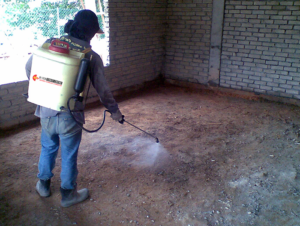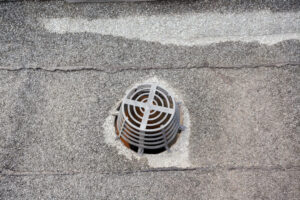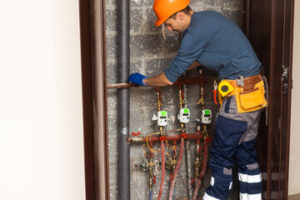A General Contractor (GC) transforms construction visions into realities while taking care of planning, coordinating, and dynamically responding to roadblocks to ensure your project is completed on time. They also ensure the project meets legal obligations and that all necessary permits are obtained.
GCs work with architects to ensure construction follows the design and blueprint. They then collaborate with subcontractors to complete specialized tasks. Contact Emergency Plumber Lawrenceville GA now!

Whether you are building a new commercial space or remodeling your existing one, the value of hiring a reputable general contractor cannot be overstated. In addition to helping you strike a balance between functionality and aesthetics, these professionals can also help you stay on budget. They are knowledgeable about the timeline of a project and can predict any unforeseen issues that may delay construction. This can help you save money on costly changes and complete your remodeling on time.
Moreover, they will help you negotiate the best prices for materials and equipment. With their extensive industry connections and expertise, they can ensure that your renovation costs are as low as possible without compromising the quality of work. They will also use their resources to optimize labor and material allocation, preventing waste. In addition, they can implement just-in-time inventory practices to minimize the storage of excess materials on-site and reduce the overall cost of the project.
A GC will also oversee the project’s budget. They will carefully analyze the project specifications and conduct thorough cost estimations to develop a detailed budget that aligns with the client’s financial goals. They will also closely monitor expenditures throughout the construction process and identify cost-saving measures without sacrificing quality.
Another way they can reduce costs is by using a hybrid markup model, which combines cost-plus and fixed-price markups to calculate final pricing. In this approach, a GC charges clients for their actual labour and material costs plus a predetermined amount for overhead expenses and profit. In this way, a GC can be more competitive in the market while remaining profitable.
Finally, a GC will provide regular progress updates and address any unforeseen issues quickly. They can also help you manage the construction schedule and make sure all necessary permits are in place. This can save you a lot of headaches and stress, especially if you’re working in a tight deadline.
In addition to providing regular updates, a GC will also ensure that all subcontractors and suppliers are paid in a timely manner. They will also handle any disputes and legal proceedings that may arise during the construction process. Lastly, they’ll protect your products’ warranties and guarantees by following the manufacturer’s instructions for installation. This will ensure that your building products last for a long time.
Aesthetics
Aesthetics is a branch of philosophy that studies the nature & expression of beauty/taste. Aesthetics are one of the primary elements considered in architecture. They are incorporated into building construction to create a unique & attractive structure that people will want to explore.
A building’s aesthetics is an important factor in the decision-making process for home buyers. It is more than just about the design, color scheme, and layout of the property. It is also about the positive emotions the visual elements evoke in potential buyers. The right balance of aesthetics can make a home more desirable than others on the market and increase its perceived value.
Many different professions contribute to a building’s aesthetics, from architects to landscape designers. Each of these professions has its own professional trade association that helps set industry standards for the profession and outlines its ethical responsibilities. The American Society for Aesthetics, for example, is a scholarly organization that publishes the Journal of Aesthetics and Art Criticisms. Other groups, like the International CPTED Association, promote processes that impact aesthetics.
Although some businesses may ignore the importance of a building’s aesthetics, the majority of business owners understand that a well-designed building can help them attract customers and enhance their brand image. For example, a restaurant that has a great view of the city will encourage customers to return. However, the most successful restaurants also balance a building’s aesthetics with functionality. For example, a restaurant with a modern design will not detract from the functionality of its kitchen or seating areas.
Aesthetics are not a luxury in the construction business. They are a critical part of a building’s overall appearance and should be incorporated into the design process from the beginning. A General Contractor that takes the time to consider a building’s aesthetics will create a more appealing building that will draw in more customers. They will also use materials that are sustainable and environmentally friendly to keep costs down.
Safety
Safety is the cornerstone of a successful construction project, and general contractors are often responsible for establishing the safety culture for a project. This involves more than just setting rules and regulations, but creating a mindset that makes safety part of everyone’s daily routine. General contractors should be able to provide employees with relevant training courses to ensure they are knowledgeable about the unique safety risks associated with their job. These courses can help reduce injuries and prevent delays in meeting deadlines.
Licensed general contractors are essential for commercial and public construction projects. These professionals are required to maintain liability insurance and meet minimum state requirements for bonding, taxes, and safety. They also have experience handling complex construction jobs, which means they can anticipate challenges and work through them. In addition, GCs can provide detailed timelines and budgets to give clients peace of mind.
To become a licensed GC, one must pass an examination and satisfy specific experience requirements. Many GCs work on several projects at once, which requires exceptional organizational skills. Additionally, they must understand the ins and outs of the different types of construction work to be able to plan effectively. Keeping up with industry trends and new developments is crucial to their success.
In addition to training workers, a good GC will conduct periodic on-site inspections and walk-throughs. They will also review daily reports to identify potential issues and adjust schedules as necessary. They will also manage project turnover to the owner and tie up loose ends.
Before a contractor begins their work, they should inform the facility’s designated representative about any health and safety hazards that may be introduced by their work. This includes complying with federal and state Right-To-Know laws. The designated representative should also be provided with safety data sheets for any chemicals the contractor will bring onto the site.
In addition to these procedures, a good GC will also keep the worksite clean and organized. For example, they will ensure that the site is free from dangerous items like unsecured ladders and loose nails. They will also make sure that the work area is kept clear of hazards such as electrical lines, piping, and ventilation systems.
Time
A General Contractor is the person in charge of coordinating and overseeing a construction project. They are responsible for bringing the job to completion on time and within budget. GC’s are licensed professionals that perform a variety of jobs on commercial and residential projects, including remodeling, renovation, new construction, and repairs. There are two ways a GC makes money: by taking a percentage markup of subcontractor labor and materials, or through a fixed price contract with a predetermined profit margin. Both methods require the GC to create accurate estimates and bids and to manage costs during construction to meet their profit goals.
When choosing a GC, make sure you get multiple estimates, compare apples to apples, and get references and reviews of previous work. Also, be aware that not all GC’s are created equal – some have design ideas that may not be the best for your project, so choose wisely.
GCs charge between 10% and 20% of the total project cost, depending on their experience, reputation, and location. Typically, a negotiated contract with a property owner is the preferred method of payment. This type of contract gives the GC a chance to earn trust from the property owner through quality and consistent performance. It is important to establish a fee structure with the GC that is agreeable for both parties, and to clearly communicate expectations throughout the project.
The duration of a GC’s license process depends on the state where you live and the level of preparation you put in before passing the exam. Generally, it takes between three to six months. Once you’ve earned your license, it is crucial to keep up with continuing education requirements to maintain your license.
The best way to ensure your GC is performing well on the job is to ask them for referrals and review their previous projects. In addition, a good GC should be able to provide you with detailed daily reporting on the progress of your project. This information is critical for both you and the GC to understand the status of the work and its progress.








